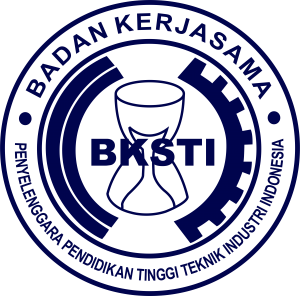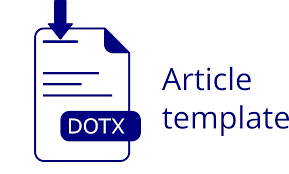Pendekatan Model Causal Loop Diagram (CLD) Pada Pengelolaan Air Limbah PT.Chandra Asri Petrochemical
DOI:
https://doi.org/10.37090/indstrk.v8i2.1367Abstract
The development of industries linked to population growth in Indonesia has led to increased waste production, particularly in terms of wastewater. This research examines the wastewater management system at PT. Chandra Asri Petrochemical Tbk (CAP), emphasizes the importance of waste treatment to prevent environmental pollution and maintain ecosystem sustainability. Through literature review methods, field studies, and the utilization of a simulation model employing Causal Loop Diagrams (CLD), this study evaluates the impact of industrial wastewater management on the environment and society. The research findings identify wastewater treatment processes at CAP, including the Neutralization Pit, Oil Separator, Dust Filter, and Dust Trap, along with regular inspections to ensure that water quality meets the established standards.
Keywords: Causal Loop Diagrams, Dynamic Methods, Environmental Impact, Waste Water Quality Standards, Waste Water Treatment.
Downloads
References
Abdullah, A. H. (2018). Pendekatan Analisis Sistem Causal Loop Diagram (Cld) dalam Memahami upaya Pemerintah Meningkatan Akses Masyarakat terhadap Pendidikan Tinggi yang Berkualitas. Jurnal Ilmiah Iqra’, 5(2). https://doi.org/10.30984/jii.v5i2.573
Aryani, R. P. (2022). Causal Loop Diagram Kepuasan Pelanggan terhadap Layanan Publik: Studi Kasus Direktorat Registrasi Pangan Olahan, BPOM. Eruditio : Indonesia Journal of Food and Drug Safety, 2(2), 56–72. https://doi.org/10.54384/eruditio.v2i2.144
Aryani, R. P., & Siallagan, M. (2021). Causal Loop Diagram for Better Understanding of Customer Satisfaction in The Indonesian Public Service. Journal of International Conference Proceedings, 4(2). https://doi.org/10.32535/jicp.v4i2.1228
Askari, H. (2015). Perkembangan Pengolahan Air Limbah.
Atima, W. (2015). BOD DAN COD SEBAGAI PARAMETER PENCEMARAN AIR DAN BAKU MUTU AIR LIMBAH. Biosel: Biology Science and Education, 4(1), 83. https://doi.org/10.33477/bs.v4i1.532
Badan Pusat Statistik, Kementrian PPN/Bappenas, & United Nation Population Fund. (2013). Katalog BPS: 2101018. Dalam Badan Pusat Statistik.
Chandra Asri Petrochemical. (2022). Sustainability Report PT Chandra Asri Petrochemical Tbk.
Dewi, Y. K., Pratiwi, N., & Jinca, M. Y. (2020). Konsep Pengelolaan Air Limbah Kawasan Industri Makassar (KIMA). Jurnal Penelitian Enjiniring, 24(1), 1–10. https://doi.org/10.25042/jpe.052020.01
Dinar Pramestie, I. S., & Wilujeng, S. A. (2023). Evaluasi Pengelolaan Limbah Bahan Berbahaya dan Beracun (B3) di PT XYZ. Jurnal Teknik ITS, 12(2), B95–B102. https://doi.org/10.12962/j23373539.v12i2.120730
E. Wirijadinata, J., & Afriany, D. (2017). ANALISIS PENINGKATAN KUALITAS PELAYANAN IZIN USAHA PERDAGANGAN DENGAN MENGGUNAKAN CAUSAL LOOP DIAGRAM (CLD). Jurnal Ilmu Administrasi: Media Pengembangan Ilmu dan Praktek Administrasi, 14(2), 151–166. https://doi.org/10.31113/jia.v14i2.110
Hardiansyah, R., Afiuddin, A. E., & Hasin, M. K. (t.t.). Perancangan dan Pembuatan Sistem Informasi Penyimpanan Data Limbah B3 Menggunakan Metode Personal Extreme Programming (PXP) di Industri Asam Fosfat. 2623.
Otofiani, N. (t.t.). TINJAUAN ULANG KAPASITAS LIMBAH AIR KOTOR PADA TANGKI SEPTIK DI RUSUNAWA POLITEKNIK NEGERI BENGKALIS.
Purnamasari, R., Khoiri, M., Zuhdy, A. Y., & Fauzi, A. (2023). PREDIKSI KINERJA PROYEK KONSTRUKSI DENGAN PENDEKATAN SISTEM DINAMIK. 4.
Rimantho, D. (2019). ANALISIS KAPABILITAS PROSES UNTUK PENGENDALIAN KUALITAS AIR LIMBAH DI INDUSTRI FARMASI. Jurnal Teknologi, 11(1).
Sami, M., & Razi, M. (2022). Pemanfaatan Limbah Domestik Menjadi Pupuk Organik Cair Bagi Masyarakat Gampong Alue Lim Kecamatan Blang Mangat Kota Lhokseumawe.
Simbolon, A., & Munandar, A. (t.t.). Analisis Pengelolaan Limbah Berbahaya Dan Beracun.
State Polytechnic of Jember, & Susmiati, Y. (2018). The Prospect of Bioethanol Production from Agricultural Waste and Organic Waste. Industria: Jurnal Teknologi dan Manajemen Agroindustri, 7(2), 67–80. https://doi.org/10.21776/ub.industria.2018.007.02.1
Tamandita, A. R., & Novembrianto, R. (2023). Kajian Pengelolaan Limbah Domestik dan Limbah Bahan Berbahaya dan Beracun (B3) PT X Adisty Regina Tamandita, Rizka Novembrianto. 2(3).
Downloads
Published
Issue
Section
License

This work is licensed under a Creative Commons Attribution-ShareAlike 4.0 International License.









